November 26: 2016 Original blog post from 2 days ago has been amended to reflect updated events.
After the recent loss of Qila, a beluga whale at the Vancouver Aquarium (who in some ways I watched grow up alongside my evolving view of belugas from “boring” to “beautiful”), shortly followed by the news that her mother Aurora passed from the same illness following heroic efforts to save her, I was reminded of a Skytrain ride conversation I overheard in which someone had clearly been inspired by these two animals.
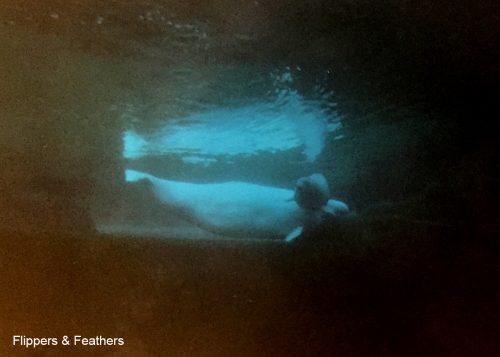
A very young Qila with her mother, Aurora
On this commute a small child was gushing to his grandfather about beluga whales. How cool they are, how their home is melting, how pollution makes them “poisonous” (toxic), how he’s going to write about belugas for school and tell his classmates, and how he wants to raise money to help them. His grandfather smiled and asked if he knew the Vancouver Aquarium had beluga whales. “YEAH!!! Auntie took me! That’s how I know this!” and on and on he went. If he paused to take a breath, I would be surprised.
Qila and Aurora played a direct role in inspiring the child above. Although many people do visit zoos and aquariums to be entertained, connecting with these animal ambassadors provides a tactile experience that can touch both mind and heart in ways books and television often can’t.
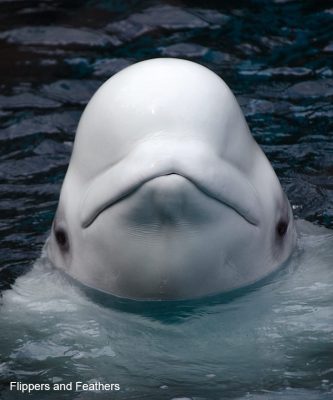
And for those who aren’t inspired, the money they spend on admission, food, and souvenirs still helps fund conservation and research projects, of which the Vancouver Aquarium has many.
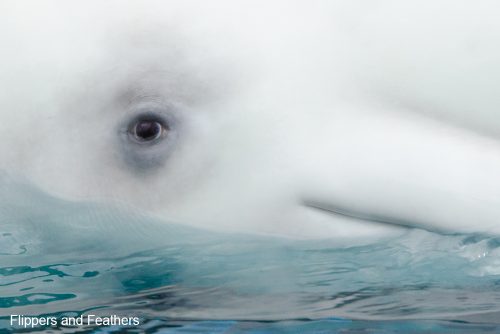
Up close with Aurora
So like Jack the Harbour Porpoise, may Qila and Aurora live on through those they touched and inspired, and the wild belugas whose lives may be saved as a result. They will without doubt be dearly missed by their dedicated carers, and aquarium visitors as well.
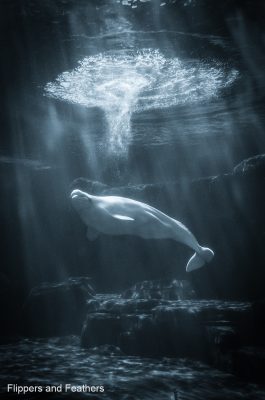
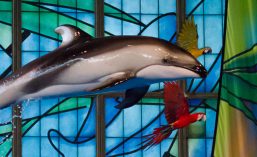
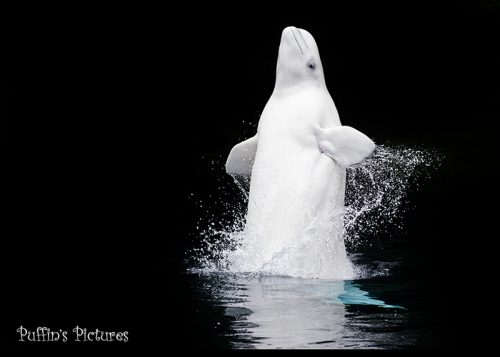
That’s beautiful. Captive animals in well-managed settings can give people–especially children–the personal connection to animals that can make them care about them for the rest of their lives. The value of this is incalculable–without people who care there is no hope. There has to be enough people to support regulation and conservation efforts to have any chance of success. A few animals do make sacrifices of some of their own freedom to act as ambassadors to the human race. There are worse fates. Life in an ocean infested with human predators is no picnic. I have seen marine mammals I am convinced truly enjoyed their social life with humans, so I believe it CAN be done right–though it osn’t always. And it is never worth it to acquire these animals through hunts or slaughters. They should be rescues that cannot be returned to the wild; and it seems to me that captive breeding should be encouraged. At any rate, the inspiration they can provide for children cannot be underestimated.